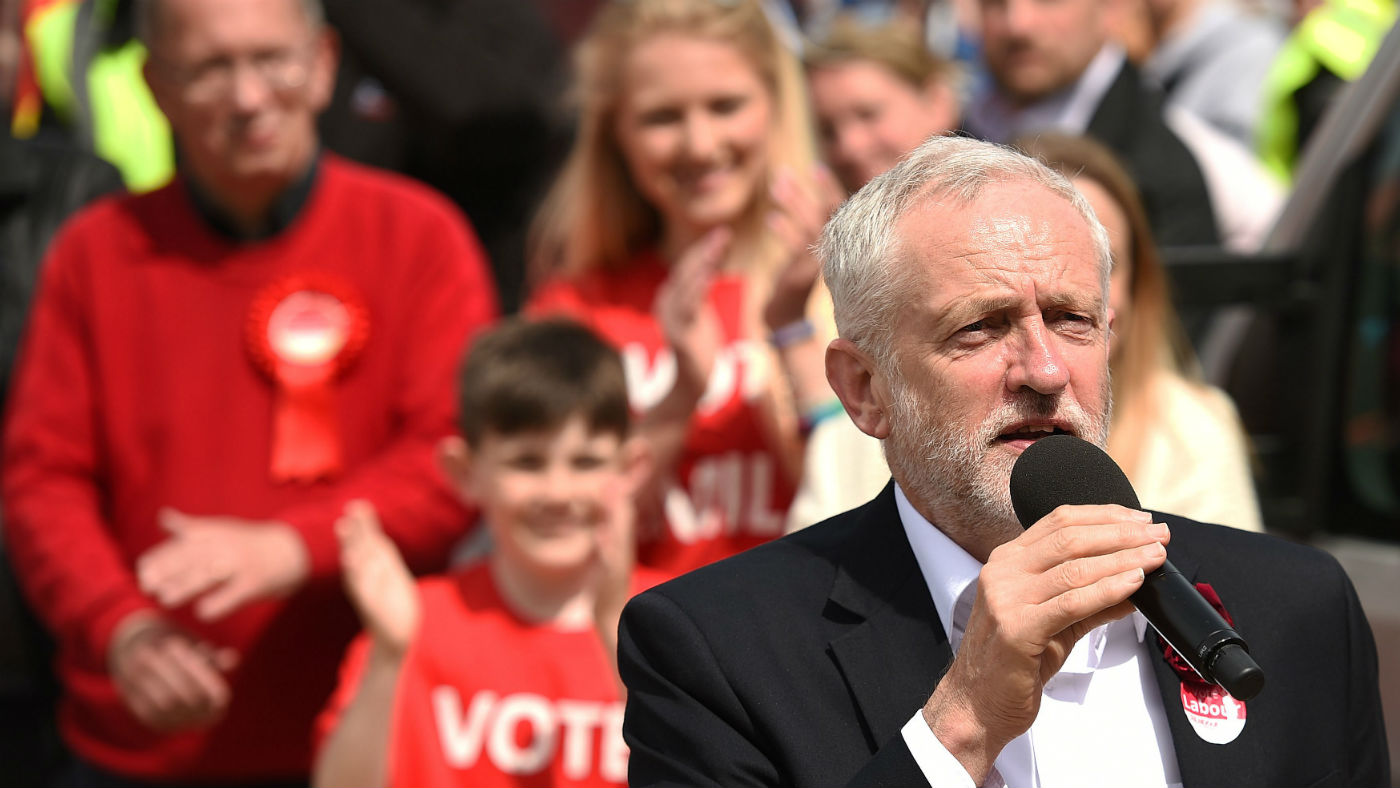Russia ‘tried to swing election for Corbyn’
Experts warn it is impossible to prove who was behind social media ‘bots’

A free daily email with the biggest news stories of the day – and the best features from TheWeek.com
You are now subscribed
Your newsletter sign-up was successful
Russia attempted to swing last year’s general election in favour of Jeremy Corbyn by using social media robot accounts to promote the Labour leader, an investigation by The Sunday Times has concluded.
Research conducted with Swansea University identified some 6,500 Russian Twitter accounts that rallied behind Labour in the run-up to June’s vote, sending messages that were seen by millions of voters.
Analysis of these accounts, many of which used female English names, found nine out of ten messages about Labour were supportive of the party’s campaign. The same proportion of tweets about the Conservatives were hostile.
The Week
Escape your echo chamber. Get the facts behind the news, plus analysis from multiple perspectives.

Sign up for The Week's Free Newsletters
From our morning news briefing to a weekly Good News Newsletter, get the best of The Week delivered directly to your inbox.
From our morning news briefing to a weekly Good News Newsletter, get the best of The Week delivered directly to your inbox.
Around 80% of the automated accounts were created after Theresa May called the snap election. They were more active at key moments including the launch of the Conservative Party manifesto, the Manchester Arena bombing and televised election debates.
The fake accounts identified so far “are just the tip of the iceberg”, The Sunday Times says, and academics are asking Twitter to investigate the true scale of Russian meddling in British politics.
Digital, Culture, Media and Sport Secretary Matt Hancock expressed concern about the suggestion that state actors were behind the automated accounts, adding it was “absolutely unacceptable for any nation to attempt to interfere in the democratic elections of another country”.
However, The Independent says experts “cautioned that it was impossible to prove who was behind the networks, their motives or what impact they had in the ‘murky’ world of information warfare”.
A free daily email with the biggest news stories of the day – and the best features from TheWeek.com
The shadow chancellor, John McDonnell, dismissed the assertion that Russians “tried to swing the election” in Labour’s favour as a “classic Sunday Times smear campaign”.
“This is ludicrous,” he told Sky News. “If I remember rightly, the Russian Embassy was putting out supportive noises towards the Tory party.
“If there’s an issue here about anything with Russian influence in our society, it’s about Russian oligarchs funding the Tory party – let’s have an inquiry into that.”
Russia has faced repeated accusations it sought to meddle in both the 2016 Brexit vote and US presidential election with social media ‘bots’. Data analysis firm Cambridge Analytica has been accused of illegally harvesting millions of people’s private data to specifically target swing voters with bespoke messages.
While online micro-targeting has become a major part of election campaigning in recent years, there is little evidence about how much it affects the outcome.
Swansea University Professor Oleksandr Talavera, who led the Sunday Times investigation, pointed to a study suggesting sentiments expressed on Twitter could affect the stock market. He said this suggested there might be an impact on elections, but added there is currently no way to quantify the outcome.
-
 My Father’s Shadow: a ‘magically nimble’ film
My Father’s Shadow: a ‘magically nimble’ filmThe Week Recommends Akinola Davies Jr’s touching and ‘tender’ tale of two brothers in 1990s Nigeria
-
 Send Help: Sam Raimi’s ‘compelling’ plane-crash survival thriller
Send Help: Sam Raimi’s ‘compelling’ plane-crash survival thrillerThe Week Recommends Rachel McAdams stars as an office worker who gets stranded on a desert island with her boss
-
 ‘Longevity fixation syndrome’: the allure of eternal youth
‘Longevity fixation syndrome’: the allure of eternal youthIn The Spotlight Obsession with beating biological clock identified as damaging new addiction
-
 How corrupt is the UK?
How corrupt is the UK?The Explainer Decline in standards ‘risks becoming a defining feature of our political culture’ as Britain falls to lowest ever score on global index
-
 ‘The censorious effect is the same, even if deployed covertly’
‘The censorious effect is the same, even if deployed covertly’Instant Opinion Opinion, comment and editorials of the day
-
 Reforming the House of Lords
Reforming the House of LordsThe Explainer Keir Starmer’s government regards reform of the House of Lords as ‘long overdue and essential’
-
 How long can Keir Starmer last as Labour leader?
How long can Keir Starmer last as Labour leader?Today's Big Question Pathway to a coup ‘still unclear’ even as potential challengers begin manoeuvring into position
-
 ‘Dark woke’: what it means and how it might help Democrats
‘Dark woke’: what it means and how it might help DemocratsThe Explainer Some Democrats are embracing crasser rhetoric, respectability be damned
-
 The high street: Britain’s next political battleground?
The high street: Britain’s next political battleground?In the Spotlight Mass closure of shops and influx of organised crime are fuelling voter anger, and offer an opening for Reform UK
-
 Biggest political break-ups and make-ups of 2025
Biggest political break-ups and make-ups of 2025The Explainer From Trump and Musk to the UK and the EU, Christmas wouldn’t be Christmas without a round-up of the year’s relationship drama
-
 Is a Reform-Tory pact becoming more likely?
Is a Reform-Tory pact becoming more likely?Today’s Big Question Nigel Farage’s party is ahead in the polls but still falls well short of a Commons majority, while Conservatives are still losing MPs to Reform